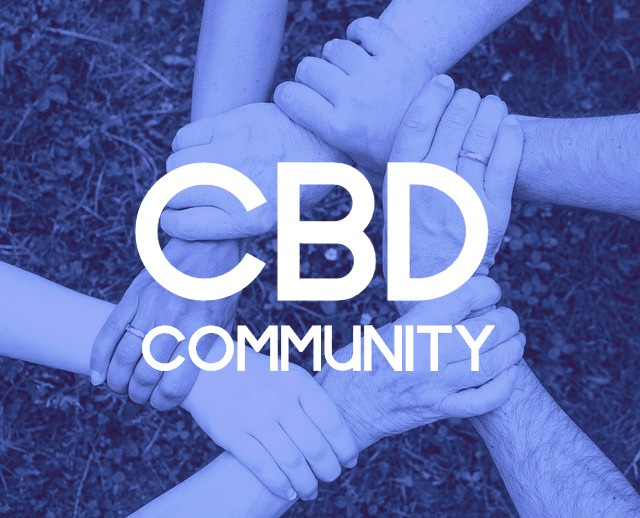Last updated on 25 May 2022
- A study in 2019 demonstrated that adults felt sedative effects following using the drug cannabidiol (CBD) (1 ).
- It is reported that the Anxiety and Depression Association of America (ADAA) stated that anxiety can cause problems with sleep (2). A study has demonstrated that CBD decreased anxiety in 79 percent of participants (3 ).
- A study from 2019 concluded that CBD improved sleep quality in 71.4 percent of patients suffering from the autism spectrum disorder (ASD) (4 ). In the Journal of Clinical Pharmacy and Therapeutics published an article that explained how four patients who were treated with CBD have reduced their frequency REM sleep behavior disorder (RBD) events (5 ).
- Another study found that CBD activity in the endocannabinoid system could provide neuroprotection, antidepressant and anxiolytic effects (6 ).
See the Best CBD for Sleep in 2022
CBD vs. Marijuana
Marijuana refers to the cannabis flowers that are derived from varieties that are high in cannabinoids, particularly THC. The term hemp refers to the fibrous seeds-bearing plant that has an abundance of CBD.
To be sure not to confuse CBD as well as marijuana keep in mind the fact that marijuana comes from a cannabis plant that is harvested because of its high THC content. In contrast, CBD is a non-psychoactive cannabinoid that is usually extracted by hemp plant.
While marijuana and hemp are two cannabis species however, they have genetic differences. Hemp plants are high in CBD and marijuana plants are high in THC.
FAQs
Is CBD Safe?
Certain CBD brands are natural and organically modified organism (non-GMO) components to guarantee the safety of their products. Certain brands also offer vegan or gluten-free options.
Many brands also provide CBD oils that come with measured droppers to ensure safe and accurate dosing.
CBD brands depend on third-party testing in order to earn the trust of their customers. Through third-party lab tests, consumers can be assured that the CBD products are free of pollutants, such as pesticides, additives and residual solvents.
But, CBD is still unregulated by the US Food and Drug Administration (FDA). According to FDA rules, CBD companies are not permitted to make health claims or market CBD as food supplements.
There is currently only one drug in the market that contains CBD. Epidiolex is the very first FDA-approved CBD medication used to treat the rare types of epilepsy (38 ).
Is CBD Legal?
It is derived from industrial or agricultural hemp, CBD can be legally cultivated at federal levels in the US under the 2018 Farm Bill (39 ).
Manufacturers are permitted to transport, manufacture, and sell CBD provided that the concentration is 0.3 percent or less THC levels.
It is however recommended to research the laws of your state before buying CBD products. CBD is still prohibited under the state laws of Idaho as well as South Dakota as of 2020 (40 ).
Conclusion
Research has shown that CBD could have therapeutic properties in the pursuit of restful sleep through increasing mental wellbeing, for example decreasing PTSD and anxiety symptoms in humans (41-42 ).
Recent studies have demonstrated positive results. However, further studies are required to prove CBD’s efficacy in getting more natural sleep.
Experts recommend that no matter what treatments or medicines are chosen for treatment, a healthy sleeping routine is essential to maintain an optimal circadian rhythm and better sleep patterns.
- Keep a regular, healthy sleeping schedule.
- Keep active by working out, taking a hike, yoga, or cycling.
- Limit or avoid the consumption of alcohol, caffeine, and nicotine consumption.
- Do not eat large meals prior to bedtime.
- Don’t drink too much prior to the time you go to bed.
- Avoid naps.
- If you are experiencing discomfort, don’t allow the pain. Talk to a doctor to determine the best medication to treat the pain.
Individuals are advised to speak with a qualified physician prior to adding CBD in their daily routine. Interested buyers may also read up on the published research about CBD on NIH’s PubMed Central (PMC) or National Center for Biotechnology Information website, www.ncbi.nlm.nih.gov.
- Shannon, S., Lewis, N., Lee, H., & Hughes, S. (2019). Cannabidiol in Anxiety and Sleep: A Large Case Series. The Permanente Journal, 23, 18-041. https://doi.org/10.7812/TPP/18-041
- Anxiety and Depression Association of America. Sleep Disorders. Retrieved from https://adaa.org/understanding-anxiety/related-illnesses/sleep-disorders
- Shannon, S (2019)., Op cit.
- Barchel, D., Stolar, O., De-Haan, T., Ziv-Baran, T., Saban, N., Fuchs, D. O., Koren, G., & Berkovitch, M. (2019). Oral Cannabidiol Use in Children With Autism Spectrum Disorder to Treat Related Symptoms and Co-morbidities. Frontiers in Pharmacology, 9, 1521. https://doi.org/10.3389/fphar.2018.01521
- M. H. N. Chagas MD PhD, A. L. Eckeli MD PhD, A. W. Zuardi MD PhD, M. A. Pena-Pereira MD, M. A. Sobreira-Neto MD, E. T. Sobreira PhD, M. R. Camilo MD, M. M. Bergamaschi PhD, C. H. Schenck MD, J. E. C. Hallak MD PhD, V. Tumas MD PhD and J. A. S. Crippa MD PhD., (2014)., Cannabidiol can improve complex sleep-related behaviors that are that are associated with rapid eye movements sleep disorders in patients with Parkinson’s disease A case study., Journal of Clinical Pharmacy and Therapeutics. https://doi.org/10.1111/jcpt.12179
- Murillo-Rodriguez E. (2008). The function in CB1 receptor CB1 receptor for sleep regulation. Progress in neuro-psychopharmacology & biological psychiatry, 32(6), 1420-1427. https://doi.org/10.1016/j.pnpbp.2008.04.008
- The Mayo Clinic. Sleep Disorders Overview. Retrieved from https://www.mayoclinic.org/diseases-conditions/sleep-disorders/symptoms-causes/syc-20354018
- Institute of Medicine (US) Committee on Sleep Medicine and Research; Colten HR, Altevogt BM and Altevogt BM, editors. Sleep Disorders and Sleep Deprivation: An Unmet Public Health Problem. Washington (DC): National Academies Press (US); 2006. 2, Sleep Physiology. Available from: https://www.ncbi.nlm.nih.gov/books/NBK19956/
- Roth T. (2007). Sleepiness: definition, prevalence as well as the etiology and effects. Journal of clinical sleep medicine: JCSM the official journal by the American Academy of Sleep Medicine, 3(5 Suppl), S7-S10.
- Babson, K. A., Sottile, J., & Morabito, D. (2017). Cannabis, Cannabinoids, and Sleep: a Review of the Literature. Current psychiatry research reports, 19(4), 23. https://doi.org/10.1007/s11920-017-0775-9
- Guimaraes, F. S., Chiaretti, T. M., Graeff, F. G., & Zuardi, A. W. (1990). The antianxiety effects of cannabidiol the plus-maze with elevated levels. Psychopharmacology, 100(4), 558-559. https://doi.org/10.1007/BF02244012
- Markov, D., Jaffe, F., & Doghramji, K. (2006). Update on parasomnias: A review of psychiatric practices. Psychiatry (Edgmont (Pa. : Township)), 3(7), 69-76. PMID: 20975819
- M. H. N. Chagas (2014).,Op cit
- Shannon, S., (2019)., Op cit.
- Vandrey, R., Babson, K. A., Herrmann, E. S., & Bonn-Miller, M. O. (2014). Interactions between sleep disorders, post-traumatic stress disorder, as well as addiction disorders. International review of psychotherapy (Abingdon, England), 26(2), 237-247. https://doi.org/10.3109/09540261.2014.901300
- M. H. N. Chagas (2014).,Op cit
- Elms, L., Shannon, S., Hughes, S., & Lewis, N. (2019). Cannabidiol in the Treatment of Post-Traumatic Stress Disorder: A Case Series. Journal of complementary and alternative medicine (New York, N.Y.), 25(4), 392-397. https://doi.org/10.1089/acm.2018.0437
- Minnesota Department of Health. (2017) Medical Cannabis Program to Add Autism and Obstructive Sleep Apnea as Qualifying Conditions. Retrieved from https://www.health.state.mn.us/news/pressrel/2017/cannabis113017.html
- Blessing, E. M., Steenkamp, M. M., Manzanares, J., & Marmar, C. R. (2015). Cannabidiol as a Potential Treatment for Anxiety Disorders. Neurotherapeutics The journal of the American Society for Experimental NeuroTherapeutics, 12(4), 825-836. https://doi.org/10.1007/s13311-015-0387-1
- Pacher, P., Batkai, S., & Kunos, G. (2006). The endocannabinoid system is an emerging target for the pharmacotherapy. Review of pharmacological studies, 58(3), 389-462. https://doi.org/10.1124/pr.58.3.2
- Murillo-Rodriguez, E. (2008)., Op cit.
- Shannon, S., (2019)., Op cit.
- Murillo-Rodriguez E. (2008)., Op cit.
- Manzanares, J., Julian, M., & Carrascosa, A. (2006). The role of the cannabinoid system in the control of pain as well as therapeutic applications for the treatment of chronic and acute pain episodes. Current neuropharmacology, 4(3), 239-257. https://doi.org/10.2174/157015906778019527
- World Health Organization. Expert Committee on Drug Dependence. (2017, Nov 6-10). Cannabidiol (CBD). Retrieved from https://www.who.int/medicines/access/controlled-substances/5.2_CBD.pdf
- Babson, K. A., (2017)., Op cit.
- Bauer, B. (2018, Dec 20). What are the advantages of CBD — and is it appropriate for use? Retrieved from https://www.mayoclinic.org/healthy-lifestyle/consumer-health/expert-answers/is-cbd-safe-and-effective/faq-20446700
- Nicholson, A. N., Turner, C., Stone, B. M., & Robson, P. J. (2004). Effect of Delta-9-tetrahydrocannabinol and cannabidiol on nocturnal sleep and early-morning behavior in young adults. Journal of Clinical Psychopharmacology, 24(3) 313-305. https://doi.org/10.1097/01.jcp.0000125688.05091.8f
- Ewing, L. E., Skinner, C. M., Quick, C. M., Kennon-McGill, S., McGill, M. R., Walker, L. A., ElSohly, M. A., Gurley, B. J., & Koturbash, I. (2019). Hepatotoxicity of a Cannabidiol-Rich Cannabis Extract in the Mouse Model. Molecules (Basel, Switzerland), 24(9), 1694. https://doi.org/10.3390/molecules24091694
- Costello, R. B., Lentino, C. V., Boyd, C. C., O’Connell, M. L., Crawford, C. C., Sprengel, M. L., & Deuster, P. A. (2014). The efficacy of melatonin in improving sleep quality A quick assessment of the evidence of the research. Nutrition journal, 13, 106. https://doi.org/10.1186/1475-2891-13-106
- Michael J. Sateia, MD1 ; Daniel J. Buysse, MD2 ; Andrew D. Krystal, MD, MS3 ; David N. Neubauer, MD4 ; Jonathan L. Heald, MA5., (2017)., Clinical Practice Guideline for the Pharmacologic Treatment of Chronic Insomnia in Adults: An American Academy of Sleep Medicine Clinical Practice Guideline. Http://dx.doi.org/10.5664/jcsm.6470
- Devnani, P. A., & Hegde, A. U. (2015). Sleep disorders and autism. Journal of Pediatric Neurosciences, 10(4), 304-307. https://doi.org/10.4103/1817-1745.174438
- Alcohol and Drug Foundation. Cannabinoids. Retrieved from https://adf.org.au/drug-facts/cannabinoids/
- Shannon, S., (2019)., Op cit.
- Schier, A., Ribeiro, N., Silva, A., Hallak, J., Crippa, J., Nardi, A., & Zuardi, A. (2012). Cannabidiol is an Cannabis sativa sativa component, is an anti-anxiolytic drug. Brazillian Journal of Psychiatry, 104-110. https://pubmed.ncbi.nlm.nih.gov/22729452/
- Hammell, D., Zhang, L., Abshire, S., McIlwrath, S., Stinchcomb, A., & Westlund, K. (2016). Transdermal cannabidiol decreases the pain-related and inflammation-related behaviors in a rat model for arthritis. European Journal of Pain, 936-948. https://www.ncbi.nlm.nih.gov/pmc/articles/PMC4851925/
- Kogan, R., Schoenfeld-Tacher, R., Hellyer, P., & Rishniw, M. (2018) US Veterinarians’ Knowledge, Experience, and Perception Regarding the Use of Cannabidiol for Canine Medical Conditions. Frontiers in Veterinary Science, 5: 338. https://www.ncbi.nlm.nih.gov/pmc/articles/PMC6338022/
- FDA approves First Drug Comprised of an active ingredient derived from marijuana to treat rare, severe forms of Epilepsy. Retrieved from https://www.fda.gov/news-events/press-announcements/fda-approves-first-drug-comprised-active-ingredient-derived-marijuana-treat-rare-severe-forms
- The 2018 United States Farm Bill. Retrieved from https://www.usda.gov/farmbill
- CBD Awareness Project. 2020 CBD Laws by State. Retrieved from https://www.cbdoil.org/cbd-laws-by-state/
- Shannon, S., (2019)., Op cit.
- Elms, L., (2019)., Op cit.
Author
Nicole Davis is a integrative medicine specialist who focuses on sleep and fatigue. She has extensively explored the therapeutic properties of cannabis, and provides specialized treatment plans according to personal symptoms. Dr. Davis is passionate about helping people feel their best, and believes that everyone deserves access to quality healthcare.



